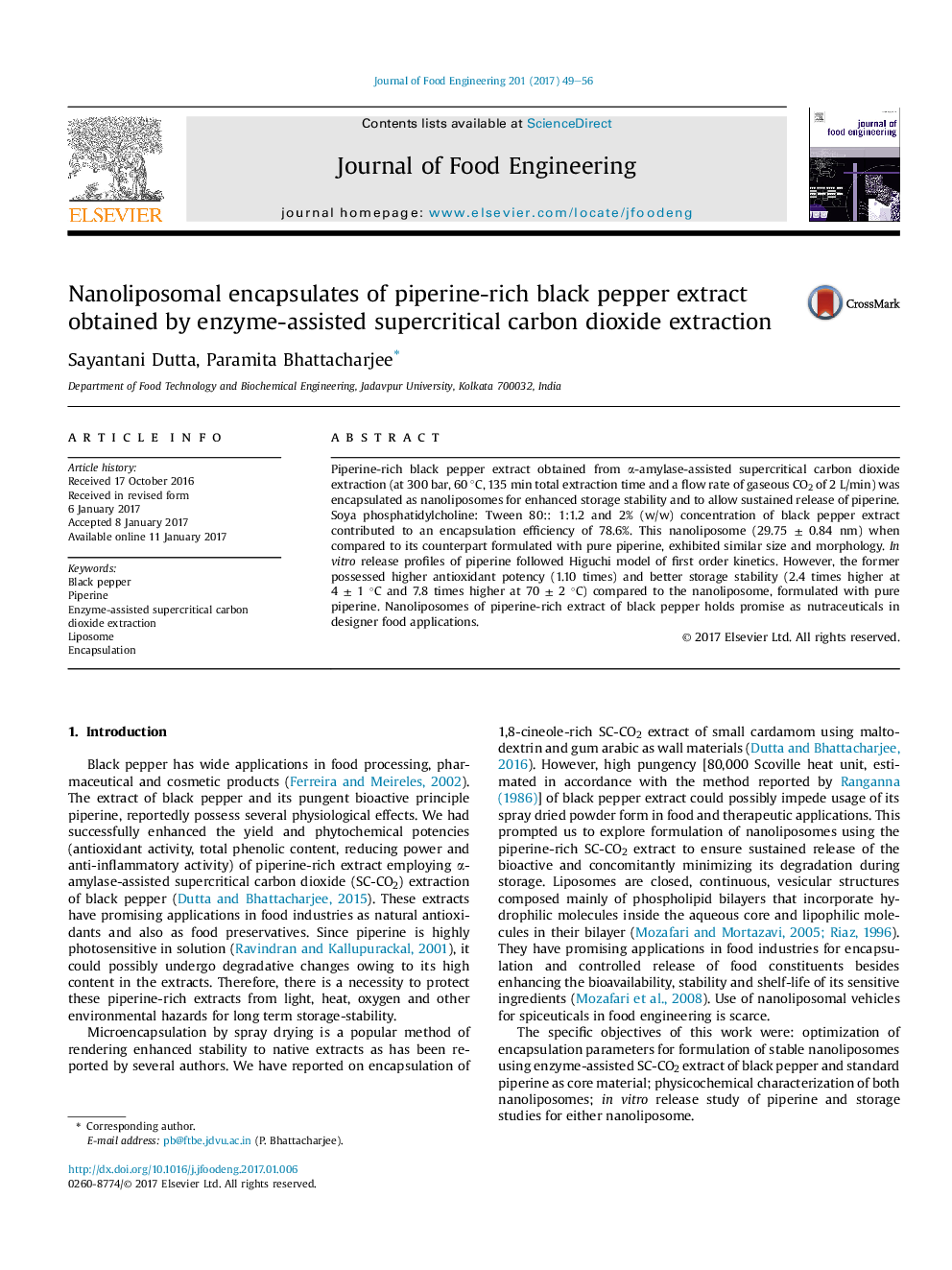| Article ID | Journal | Published Year | Pages | File Type |
|---|---|---|---|---|
| 6477574 | Journal of Food Engineering | 2017 | 8 Pages |
â¢Encapsulation of α-amylase-assisted SC-CO2 extract of black pepper.â¢Design of nanoliposomes using probe sonication and their characterization.â¢In vitro release kinetics of piperine and storage stability of nanoliposomes.
Piperine-rich black pepper extract obtained from α-amylase-assisted supercritical carbon dioxide extraction (at 300 bar, 60 °C, 135 min total extraction time and a flow rate of gaseous CO2 of 2 L/min) was encapsulated as nanoliposomes for enhanced storage stability and to allow sustained release of piperine. Soya phosphatidylcholine: Tween 80:: 1:1.2 and 2% (w/w) concentration of black pepper extract contributed to an encapsulation efficiency of 78.6%. This nanoliposome (29.75 ± 0.84 nm) when compared to its counterpart formulated with pure piperine, exhibited similar size and morphology. In vitro release profiles of piperine followed Higuchi model of first order kinetics. However, the former possessed higher antioxidant potency (1.10 times) and better storage stability (2.4 times higher at 4 ± 1 °C and 7.8 times higher at 70 ± 2 °C) compared to the nanoliposome, formulated with pure piperine. Nanoliposomes of piperine-rich extract of black pepper holds promise as nutraceuticals in designer food applications.
